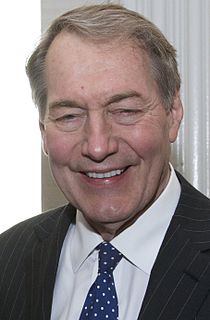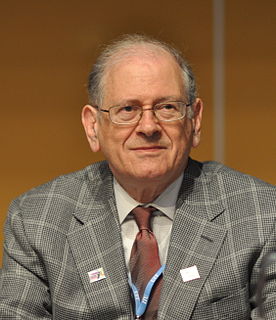A Quote by Susan Cain
Shyness is about the fear of social judgments - at a job interview or a party you might be excessively worried about what people think of you. Whereas an introvert might not feel any of those things at all, they simply have the preference to be in a quieter setting.
Related Quotes
I feel passionately about how I express myself. Language is the greatest motivating force. You can phrase something positively and inspire people to do their best, or negatively and make them feel worried, uncertain, and self-conscious. You can talk at a fast pace and people will get nervous, feel afraid to bring up extraneous thoughts. But those are the very thoughts that might be most important! They might represent that person's best thinking. If you're rushed, you're simply not going to get at that extra level of thinking.
Talking about freedom, about ethical issues, about responsibilities as well as convenience, is asking people to think about things they might prefer to ignore, such as whether their conduct is ethical. This can trigger discomfort, and some people may simply close their minds to it. It does not follow that we ought to stop talking about these things.
As a citizen I might be well-behaved and have nothing salacious or radical about me, I might be a total bore, but I might suffer somehow if other people are being spied on and blocked from doing important work that might have a collective benefit down the road. The personal doesn't necessarily translate to the social.
I think my children have presented one of the biggest lessons so far in my life. It was only when my kids were born that I realized just how much I'd been living my life worried about what everybody thought of me and, even more strangely, worried about what I imagined other people might be thinking about me.
So the idea about how detonation of a nuclear weapon might happen vary, you know - some people are especially concerned about terrorists getting their hands on nuclear weapons and using them. Some people are worried that there might be a nuclear war between India and Pakistan. Some think the Middle East, were Israel already has nuclear weapons and where other countries may be interested at some point and acquiring them, might be a flash point.
Publishing a book is a great thing, and I'm grateful, but it's also a horrible, exposing thing. Once you've published a book, you never write quite as freely again. You're aware, from that point onward, of the kinds of things critics might say about it. You're aware of the kinds of things your publishers might like and dislike about it. You're half-aware of marketing strategies - of all the stuff around the book. Whereas with your very first piece of fiction, if you're lucky, those things barely occur to you at all.
Often confused with shyness, introversion does not imply social reticence or discomfort. Rather than being averse to social engagement, introverts become overwhelmed by too much of it, which explains why the introvert is ready to leave a party after an hour and the extravert gains steam as the night goes on.
I think it's much more interesting to live not knowing than to have answers which might be wrong. I have approximate answers, and possible beliefs, and different degrees of uncertainty about different things, but I am not absolutely sure of anything. There are many things I don't know anything about, such as whether it means anything to ask "Why are we here?" I might think about it a little bit, and if I can't figure it out then I go on to something else. But I don't have to know an answer. I don't feel frightened by not knowing things, by being lost in the mysterious universe without having any purpose - which is the way it really is, as far as I can tell.
Things like racism are institutionalized. You might not know any bigots. You feel like "well I don't hate black people so I'm not a racist," but you benefit from racism. Just by the merit, the color of your skin. The opportunities that you have, you're privileged in ways that you might not even realize because you haven't been deprived of certain things. We need to talk about these things in order for them to change.
Surely we all occasionally buy books because of a daydream we're having - a little fantasy about the people we might turn into one day, when our lives are different, quieter, more introspective, and when all the urgent reading, whatever that might be, has been done. We never arrive at that point, needless to say.





































